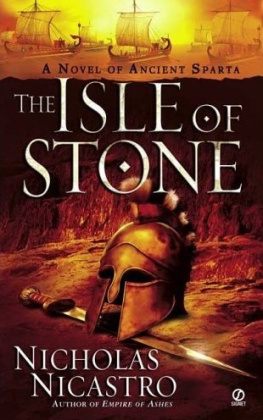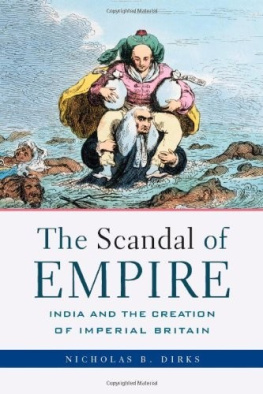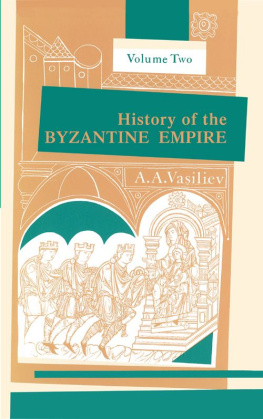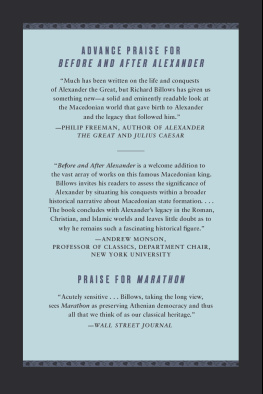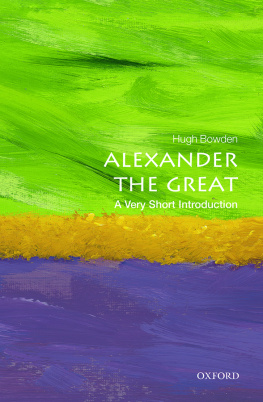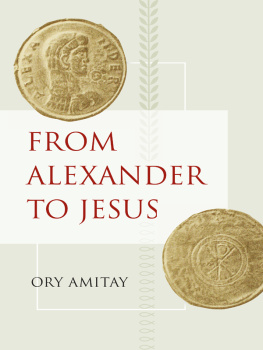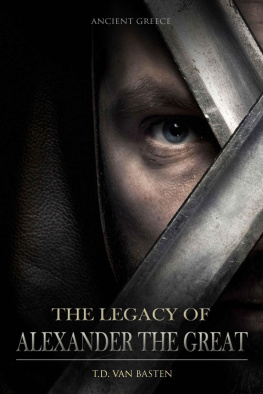Nicholas Nicastro - Empire of Ashes: A Novel of Alexander the Great
Here you can read online Nicholas Nicastro - Empire of Ashes: A Novel of Alexander the Great full text of the book (entire story) in english for free. Download pdf and epub, get meaning, cover and reviews about this ebook. genre: Adventure. Description of the work, (preface) as well as reviews are available. Best literature library LitArk.com created for fans of good reading and offers a wide selection of genres:
Romance novel
Science fiction
Adventure
Detective
Science
History
Home and family
Prose
Art
Politics
Computer
Non-fiction
Religion
Business
Children
Humor
Choose a favorite category and find really read worthwhile books. Enjoy immersion in the world of imagination, feel the emotions of the characters or learn something new for yourself, make an fascinating discovery.

- Book:Empire of Ashes: A Novel of Alexander the Great
- Author:
- Genre:
- Rating:4 / 5
- Favourites:Add to favourites
- Your mark:
- 80
- 1
- 2
- 3
- 4
- 5
Empire of Ashes: A Novel of Alexander the Great: summary, description and annotation
We offer to read an annotation, description, summary or preface (depends on what the author of the book "Empire of Ashes: A Novel of Alexander the Great" wrote himself). If you haven't found the necessary information about the book — write in the comments, we will try to find it.
Empire of Ashes: A Novel of Alexander the Great — read online for free the complete book (whole text) full work
Below is the text of the book, divided by pages. System saving the place of the last page read, allows you to conveniently read the book "Empire of Ashes: A Novel of Alexander the Great" online for free, without having to search again every time where you left off. Put a bookmark, and you can go to the page where you finished reading at any time.
Font size:
Interval:
Bookmark:
Empire of Ashes: A Novel of Alexander the Great
Nicholas Nicastro
A Note on Units of Measure
This book includes a mixture of ancient and modern units of measure. For the sake of convenience, modern units are used when they were more or less similar to their ancient counterparts (e.g., feet, hours, months). Verisimilitude has been served by including a number of antique units that are common in the relevant historical sources. Most prominent here are the stade, a Greek unit of distance approximately equivalent to 600 modern feet (and from which our word stadium is derived), and the parasang, a Persian unit equivalent to the distance a person could walk in an hour. On average the latter equaled 30 Greek stadia or three-and-a-quarter modern miles. An army of the time could cover about six parasangs in a day.
The common monetary unit is the Athenian drachma, which is equivalent in value to six obols. The superordinate units are the mina, worth 100 drachmas, and the talent, equaling 6000 drachmas. The daric is a common non-Greek unit of currency- a gold coin minted by the Persians worth about 26 drachmas.
We know that a decent house in a suburb of Athens in the fourth century BC would set the buyer back 500 to 1000 drachmas (or five to ten minas); a gallon of olive oil, more than three drachmas; a good pair of shoes, about ten drachmas; a healthy slave, 300 to 500. Still, for various reasons, expressing the value of a drachma in todays currency is not as straightforward as finding modern equivalents for, say, distance. According to an oft-cited rule of thumb, the wage for the average laborer in classical Athens was one or two drachmas a day. A talent, therefore, works out to the equivalent of almost twenty years of work, or in modern terms something like a million dollars. The treasury of 120,000 talents Alexander is said to have plundered at Persepolis (cf. Curtius, 5.6.9) was therefore equivalent to some 720 million man-days of labor. This amounts to real money even in US government terms.
As for the calendar, the reader will notice there are no absolute dates given for the events depicted here. This is due to the simple fact that no universal calendar existed until recent times (and arguably, does not exist even today, given that the Chinese, Muslim, and Jewish calendars are still in use). Instead, years were designated either by counting the years since some important event, or on the basis of who held important magistracies at that time (in Athens, years were named for the so-called eponymous archons; Alexander, for instance, was born in the year of Elpines archonship, known otherwise as July 356-June 355 BCE). The court case described here takes place in the month of Pyanopsion (the Attic equivalent of October), in the year of Kephisodoros (323 BCE); the events recounted in the trial occur in the years immediately before and during the campaign of Alexander, spring 334 through spring 323.
Prologue
Olympias examined the face in her bronze mirror. Such dull features, she thought, frowning at her saffron-tinted reflection, believing she saw in it the trial of every Epirote winter suffered by her forebears. She narrowed her examination to her eyes, tracing a flicker of interest in them as they regarded themselves. "Yes, those are fine," she said. "But the rest-hopeless!"
Before her, laid out like military assets on a battlefield, were the tools of a despised but lucrative trade: depilatories, astringents, demulcents, emollients, pomades, perfumes, balms. Next to a jar filled with a Syrian unguent of beef fat, thyme and seagull droppings, she had a flask of Corinthian warming ointment made from sesame oil and turpentine. There was an Egyptian face powder that smelled of oleander and milled so fine it flowed like liquid between her fingers; though its color was perfectly white, it rouged her cheek when she applied it. She also tried a curious device invented by a Syracusan that, with a single click, cut all the hairs of the eyebrow to a uniform length.
These were in addition to the usual natron powder, foundation of metallic mercury, kohl for the eyes, chervil for the breath all the attributes of an expensive courtesan. No respectable woman, installed in domestic glory within her walls, would need to create a seductively wan complexion by daubing her skin with lead, or fake a blush with ochre pencils. Such freedom was the gift of ill-repute.
And so that afternoon, Olympias, consort of the King of Macedonia, daughter of the royal house of Epirus, initiate advanced grade in the holy mysteries of Demeter, the Kabeiroi and the Great Mother, painted herself like a cheap flute-girl.
This wasnt necessary in past years. From the moment of their first meeting Philip had shown himself vulnerable to her attraction. They had encountered each other on Samothrace, confronting the celebrated Mysteries, but Olympias presented herself to him as a very solvable enigma. When they first married he would interrupt his endless campaigns and sieges to steal nights with her. An heir was anticipated at any time-and yet, strangely, had not come at first.
This delay she first attributed to her tendency to climax early, often several times before her partner could lumber up his own (and relatively brief) contribution. Her pleasure may have acted to drive off the male humors necessary to the process of conception, her doctors told her. So she held herself back.
Yet something still seemed to go awry, something that impinged or intruded upon the process. Too often the king left her bed at the earliest courteous instance, lips moving silently, a slash of annoyance across his face. "Too much muttering, not enough mothering," she said as she mixed the kohl with its little spoon. The result was a maddeningly empty cradle.
Philip came to her just as she finished her preparations. There was a faint look of irritation on his face, the kind he wore when state business pulled him away from dice games and drinking parties. He hardly looked at her until she turned to him, her face glazed dazzling white like a funeral jar, her cheeks like puddles of dried blood.
"You look like a streetwalker," he said.
"Shall I take it off?" she asked, rising.
Not quite by accident, her gown fell open. The look of gray distraction finally left Philips face as he eyed what he saw there.
"No, I suppose not."
When he touched her, it was always the same, like a traveler taking an identical route through a half-understood country. His first move was to denude her left shoulder and seize the breast. He did so. She kept her eyes on him, shifting her weight precisely in time with the force of his attentions.
Philip never had trouble spearing generals and envoys with his eyes. When he was alone with Olympias, though, he could never hold her glance. She was never so shy, searching his full, square, deceptively kind face, taking the measure of him. This inevitably distracted him, until she found herself turned around. He was pushing her down from behind.
The back is still your best side-and most affordable, I would think.
Three obols a go, if thats all youve got.
He yanked up her gown, regarding the cleaved haunch as it swelled down from her hips and rounded off at that swale of lubricious womanhood. A mound of true sweetness, he thought, though with that cloying softness of her sex, that quicksand prospect of letting him sink slickly away until he could go no farther. But this was like sleeping on a too-soft pillow after weeks on campaign-an adjustment he was just too impatient to make. So he took the other road.
She started at this, turning to face him. Camp-style buggery was not the object of her afternoons work.
But if you prefer, we might have a special price on the racehorse she said, coaxing him back onto the couch.
Now here is something, he thought, as she settled in jockey position athwart him. The gown had been disposed of, and she was looking down at him through tumbling flutes of sweet-smelling hair, breasts hanging free, that same vaguely appraising look on her face. The latter annoyed him, but not much in that soft vise. She turned away as she commenced to rock, not in passion but to avoid his breath, which stank of sprats and whatever wine painted his throat.
Font size:
Interval:
Bookmark:
Similar books «Empire of Ashes: A Novel of Alexander the Great»
Look at similar books to Empire of Ashes: A Novel of Alexander the Great. We have selected literature similar in name and meaning in the hope of providing readers with more options to find new, interesting, not yet read works.
Discussion, reviews of the book Empire of Ashes: A Novel of Alexander the Great and just readers' own opinions. Leave your comments, write what you think about the work, its meaning or the main characters. Specify what exactly you liked and what you didn't like, and why you think so.

